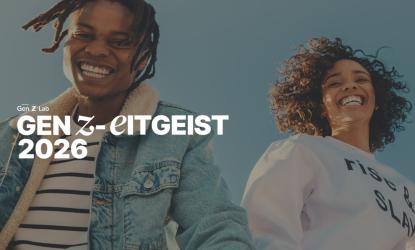- Global (EN)
- Africa (EN)
- Australia (EN)
- Belgium (EN)
- Brasil (PT)
- Canada (EN)
- Canada (FR)
- China (CN)
- France (FR)
- Germany (DE)
- Germany (EN)
- Hong Kong, China (EN)
- India (EN)
- Indonesia (EN)
- Ireland (EN)
- Italy (IT)
- Italy (EN)
- Japan (JP)
- Korea (KR)
- Latin America (ES)
- Malaysia (EN)
- Middle East (EN)
- Netherlands (EN)
- Spain (ES)
- UK (EN)
- Global (EN)
- Africa (EN)
- Australia (EN)
- Belgium (EN)
- Brasil (PT)
- Canada (EN)
- Canada (FR)
- China (CN)
- France (FR)
- Germany (DE)
- Germany (EN)
- Hong Kong, China (EN)
- India (EN)
- Indonesia (EN)
- Ireland (EN)
- Italy (IT)
- Italy (EN)
- Japan (JP)
- Korea (KR)
- Latin America (ES)
- Malaysia (EN)
- Middle East (EN)
- Netherlands (EN)
- Spain (ES)
- UK (EN)
Today, Edelman announced the appointment of Pooja Rawat as Chief Strategy Officer for APAC.
Pooja is a strategy leader with 18 years of experience in building brands across diverse sectors and cultures – from India to Southeast Asia, Central Asia and China. She has shaped narratives for leading brands across categories, such as Axis Bank, Tata Motors, Saridon, Supradyn, Godrej, PhonePe, Jeep, Vim and Lifebuoy. Her approach reflects a balance of global vision, local nuance and multi-disciplinary collaboration. Pooja’s work has been recognised for marketing effectiveness across Global, APAC and India, demonstrating her depth of experience in delivering measurable impact for clients. She joins Edelman from MullenLowe Lintas and is based in Mumbai.
Rakesh adds: “Pooja’s appointment strengthens our strategic consulting capabilities across the region. Her analytical rigor, creative vision and cultural instinct will help us deliver even greater value to clients. This is a moment of transformation for Edelman APAC, and Pooja’s leadership will be instrumental in shaping how we show up for our clients and our people.”
Pooja says: “I’m delighted to join Edelman and take on the opportunity to shape strategy across diverse markets, as well as partner with some of the world’s most dynamic brands. Edelman’s commitment to creativity, data-driven insights, and cultural relevance aligns perfectly with my passion for building meaningful connections between people and brands. I look forward to collaborating with the firm’s talented teams to deliver bold, integrated solutions that drive real impact.”
Devex’s Raj Kumar On the Trust Test Facing Global Development
'Career Ladder's' Max Klymenko On Trust, Careers and Creators
PepsiCo's Stephen Kehoe On Building Trust Amid Global Turbulence
Edelman's Power of 55
Discover Edelman’s Power of 55 – a curated list of trusted 55+ creators shaping longevity marketing and helping brands reach today’s high-spend older consumers.
Find out more
The Longest Table's Maryam Banikarim On Breaking Bread to Rebuild Trust
Andrew Ng on Separating AI Facts from Fiction

2025 will be remembered as a difficult year for the communications sector. The IPG Omnicom merger created the largest firm in the world but will require between 10-15,000 redundancies. Dentsu is selling its international holdings. WPP share price has plummeted by 50 percent, leaving the company valuation at one-third of annual revenue.
As part of the industry consolidation, several of the large legacy ad agencies were eliminated by the holding companies. The death knell was sounded for Leo Burnett (merged with Publicis into LEO), FCB (merged with BBDO), DDB (merged into TBWA) and Mullen Lowe (merged into TBWA). This is on top of the WPP consolidation of Y&R into VML, JWT into Wunderman, then Wunderman into VML. How did this happen?
First, the holding companies separated media buying from creative agencies starting forty years ago in Europe and 25 years ago in the U.S. The net effect of this change was to take the strategic function out of the agencies.
Second, holding companies organize agencies by function. This started with media, which operates as a single P&L and maintains brands such as OMD or Mindshare for conflict management. Omnicom Advertising now manages all the group’s ad agencies, and it is rumored that WPP will follow suit. This allows reduction of senior people who are key to client relationships.
Third, WPP introduced horizontality, which meant that client teams were constructed with best talent from across the holding company. In prior periods, the key relationships were held at the agency level (JWT with Ford for 100 years). With the client leaders now reporting into the holding company, the agency’s position was diminished to smaller, regional client management or providing talent to Team Coca Cola, eliminating the critical role of creative and strategic partner to clients.
Fourth, the holding companies took away key growth areas from the agencies such as healthcare or influencer. The FCB office in Chicago, for example, was a thriving, multi-sector agency but then the health unit was aggregated into a global operation, FCB Health, then into IPG Health, a holding company global collective. The acquisitions of influencer agencies by WPP and Publicis could have been important boosts to either the advertising or PR agencies but were put into the media buying units as part of a flywheel distribution method for content.
Contrary to the proclamation on BBC Radio by one of the authors of the consolidation strategy in communications, PR is alive and well. In fact, we are very well placed to thrive in a world where media is culture and culture is media. We are uniquely able to operate across brand and reputation, with a deep knowledge of public affairs necessary in the present politicized environment. We have the keys to the castle in LLM search given that earned media results are the top driver of outcomes. We can be the agency that gets the first call now that so many of the long-standing partners have been put out of business by their holding company owners in the pursuit of efficiency. Let’s win all the jump balls and get our industry back on its growth path, serving our clients with brilliance, passion and integrity.
Richard Edelman is CEO.




